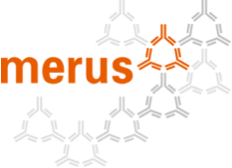Tag: patent position
Company News: After U.S. court ruling, Merus reaffirms freedom to operate for its MeMo® transgenic mouse for therapeutic human antibodies
![]()
– Regeneron’s ‘018 patent’ is considered invalid and Merus not infringing –
Merus B.V., a leader in developing best-in-class antibody therapeutics to treat cancer patients, today announced a series of pivotal events in its litigation with Regeneron Pharmaceuticals Inc. Previously, Regeneron sued Merus accusing it of infringing U.S. Patent No. 8,502,018 (‘018 patent’) directed to a particular method of making a genetically modified mouse, which Regeneron asserted was useful to produce therapeutic antibodies.
Merus argued that Regeneron had interpreted its patent in an overbroad manner, and that the patent claims were indefinite and invalid. On November 21, 2014, in a fifty-nine page decision, the United States District Court for the Southern District of New York agreed with Merus on virtually every issue, stating: “[t]his Court generally agrees with the constructions Merus proposes, limiting the Patent to a far narrower scope than asserted by Regeneron.” The court also ruled that Merus has demonstrated “clear and convincing evidence that [a key claim term] lacks reasonable certainty and is therefore indefinite.” On December 19, 2014, Regeneron filed papers with the court conceding that under these rulings, Merus does not infringe any asserted claim of the ‘018 patent, and that these claims are invalid. With this ruling and Regeneron’ s concessions, there are no outstanding claims against Merus. The only remaining issues include Merus’ claim against Regeneron that it unlawfully procured its patent from the U.S. Patent Office and Merus’ request that Regeneron pay the legal fees incurred by Merus.


